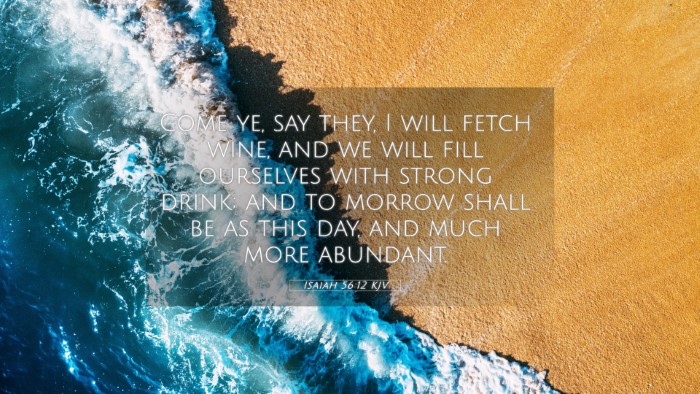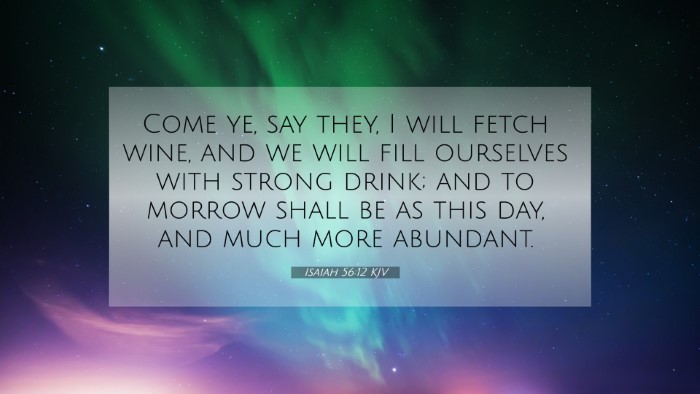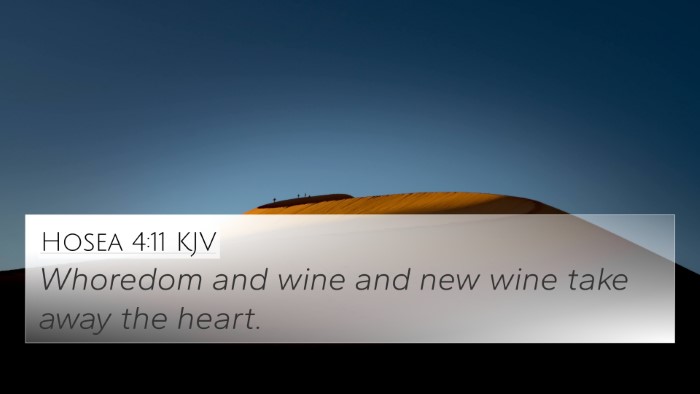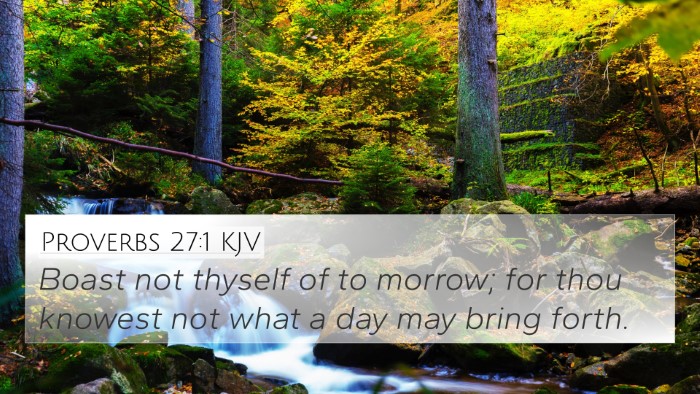This section features a detailed cross-reference designed to enrich your understanding of the Scriptures.
Below, you will find carefully selected verses that echo the themes and teachings related to Isaiah 56:12 KJV. Click on any image to explore detailed analyses of related Bible verses and uncover deeper theological insights.
 Psalms 10:6 (KJV) »
Psalms 10:6 (KJV) »
He hath said in his heart, I shall not be moved: for I shall never be in adversity.
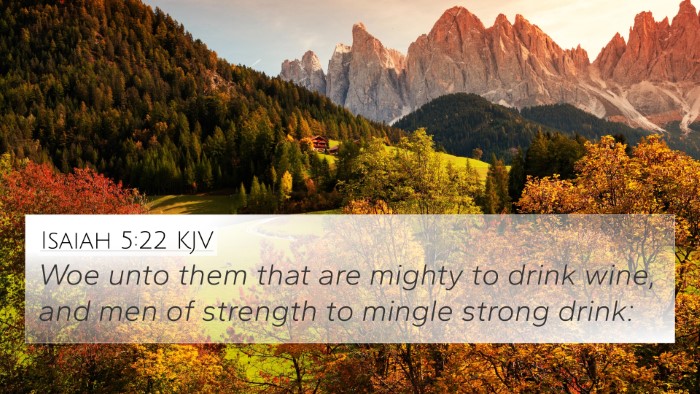 Isaiah 5:22 (KJV) »
Isaiah 5:22 (KJV) »
Woe unto them that are mighty to drink wine, and men of strength to mingle strong drink:
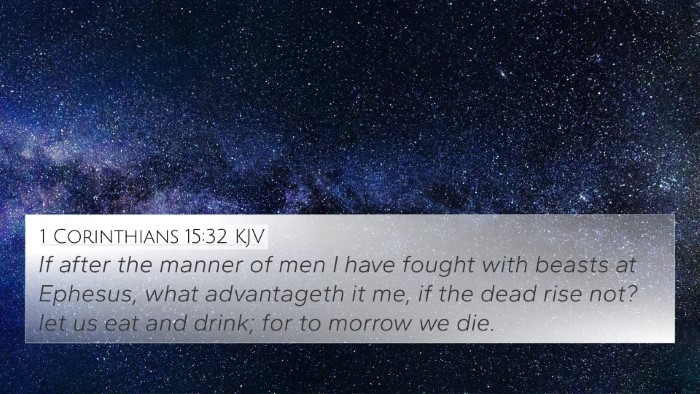 1 Corinthians 15:32 (KJV) »
1 Corinthians 15:32 (KJV) »
If after the manner of men I have fought with beasts at Ephesus, what advantageth it me, if the dead rise not? let us eat and drink; for to morrow we die.
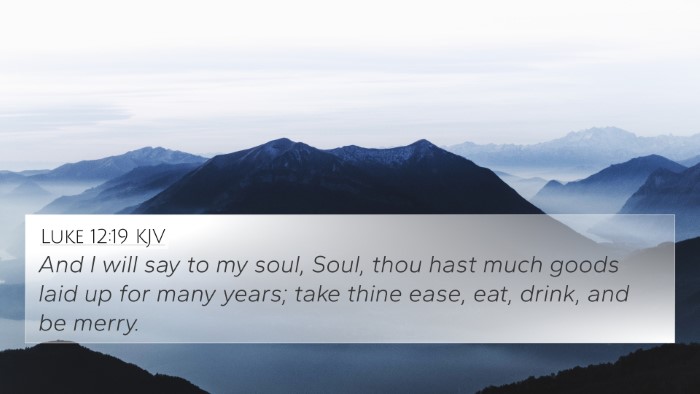 Luke 12:19 (KJV) »
Luke 12:19 (KJV) »
And I will say to my soul, Soul, thou hast much goods laid up for many years; take thine ease, eat, drink, and be merry.
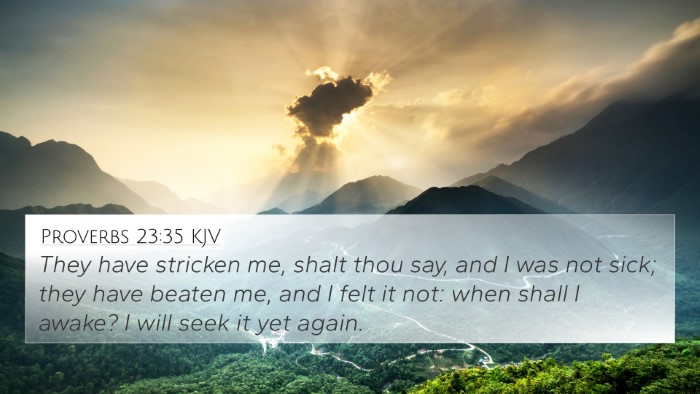 Proverbs 23:35 (KJV) »
Proverbs 23:35 (KJV) »
They have stricken me, shalt thou say, and I was not sick; they have beaten me, and I felt it not: when shall I awake? I will seek it yet again.
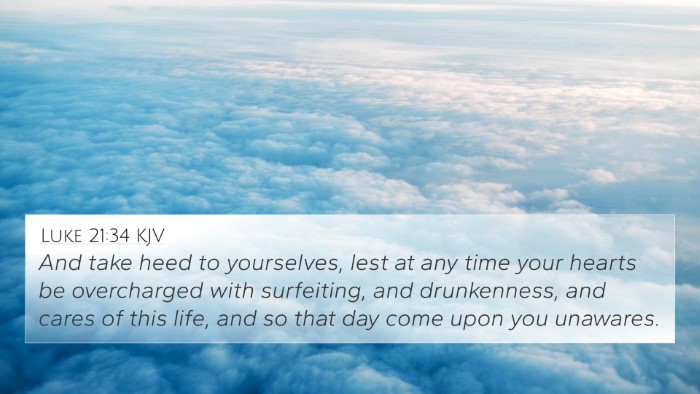 Luke 21:34 (KJV) »
Luke 21:34 (KJV) »
And take heed to yourselves, lest at any time your hearts be overcharged with surfeiting, and drunkenness, and cares of this life, and so that day come upon you unawares.
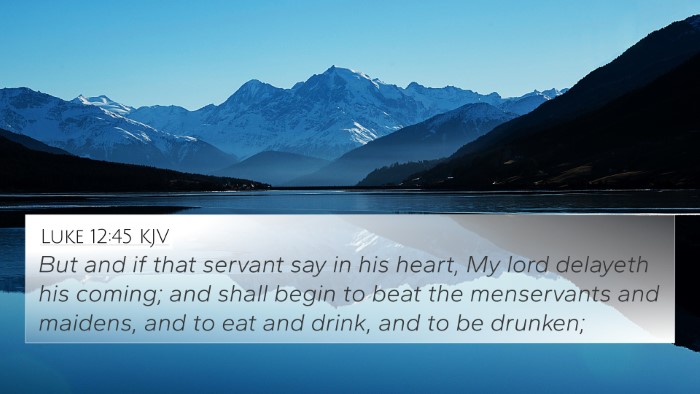 Luke 12:45 (KJV) »
Luke 12:45 (KJV) »
But and if that servant say in his heart, My lord delayeth his coming; and shall begin to beat the menservants and maidens, and to eat and drink, and to be drunken;
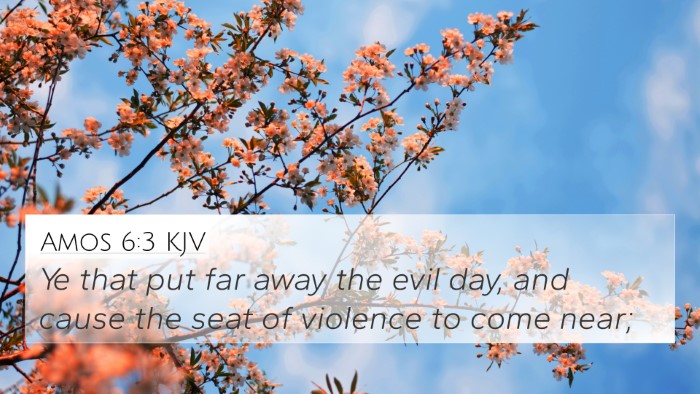 Amos 6:3 (KJV) »
Amos 6:3 (KJV) »
Ye that put far away the evil day, and cause the seat of violence to come near;
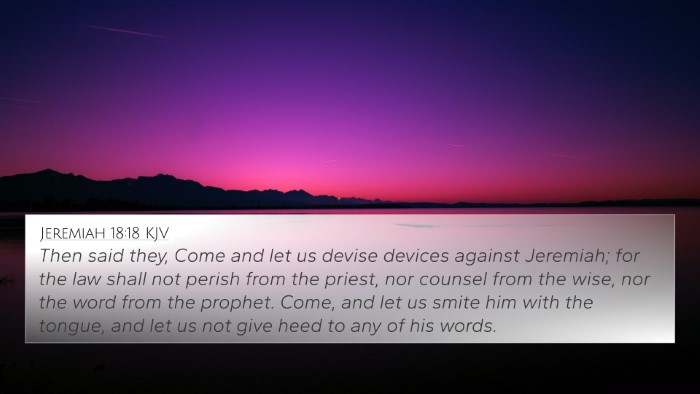 Jeremiah 18:18 (KJV) »
Jeremiah 18:18 (KJV) »
Then said they, Come and let us devise devices against Jeremiah; for the law shall not perish from the priest, nor counsel from the wise, nor the word from the prophet. Come, and let us smite him with the tongue, and let us not give heed to any of his words.
 Titus 1:7 (KJV) »
Titus 1:7 (KJV) »
For a bishop must be blameless, as the steward of God; not selfwilled, not soon angry, not given to wine, no striker, not given to filthy lucre;
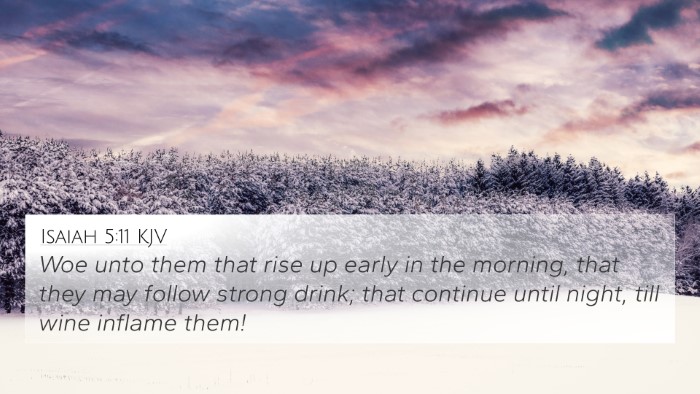 Isaiah 5:11 (KJV) »
Isaiah 5:11 (KJV) »
Woe unto them that rise up early in the morning, that they may follow strong drink; that continue until night, till wine inflame them!
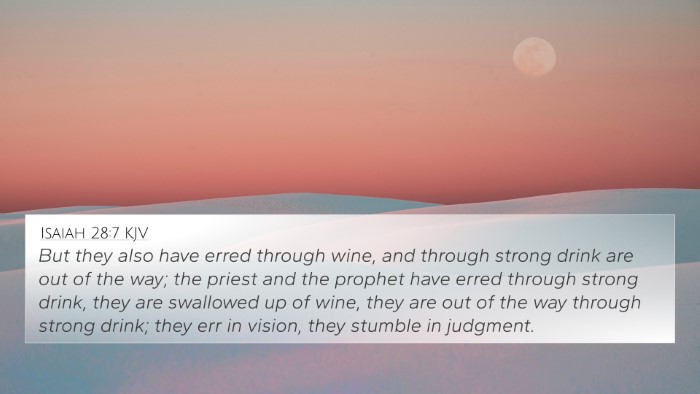 Isaiah 28:7 (KJV) »
Isaiah 28:7 (KJV) »
But they also have erred through wine, and through strong drink are out of the way; the priest and the prophet have erred through strong drink, they are swallowed up of wine, they are out of the way through strong drink; they err in vision, they stumble in judgment.
 Isaiah 22:13 (KJV) »
Isaiah 22:13 (KJV) »
And behold joy and gladness, slaying oxen, and killing sheep, eating flesh, and drinking wine: let us eat and drink; for to morrow we shall die.
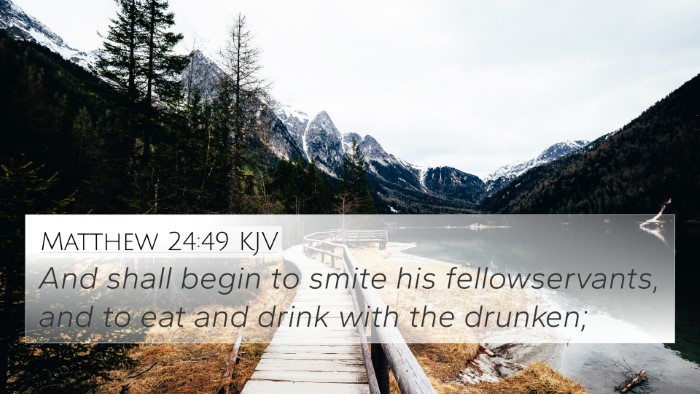 Matthew 24:49 (KJV) »
Matthew 24:49 (KJV) »
And shall begin to smite his fellowservants, and to eat and drink with the drunken;
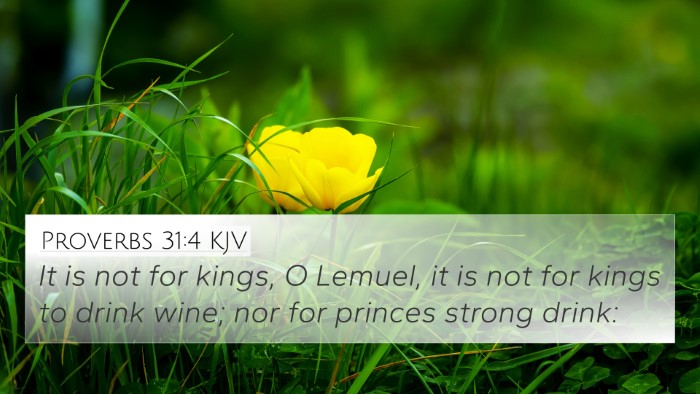 Proverbs 31:4 (KJV) »
Proverbs 31:4 (KJV) »
It is not for kings, O Lemuel, it is not for kings to drink wine; nor for princes strong drink:

